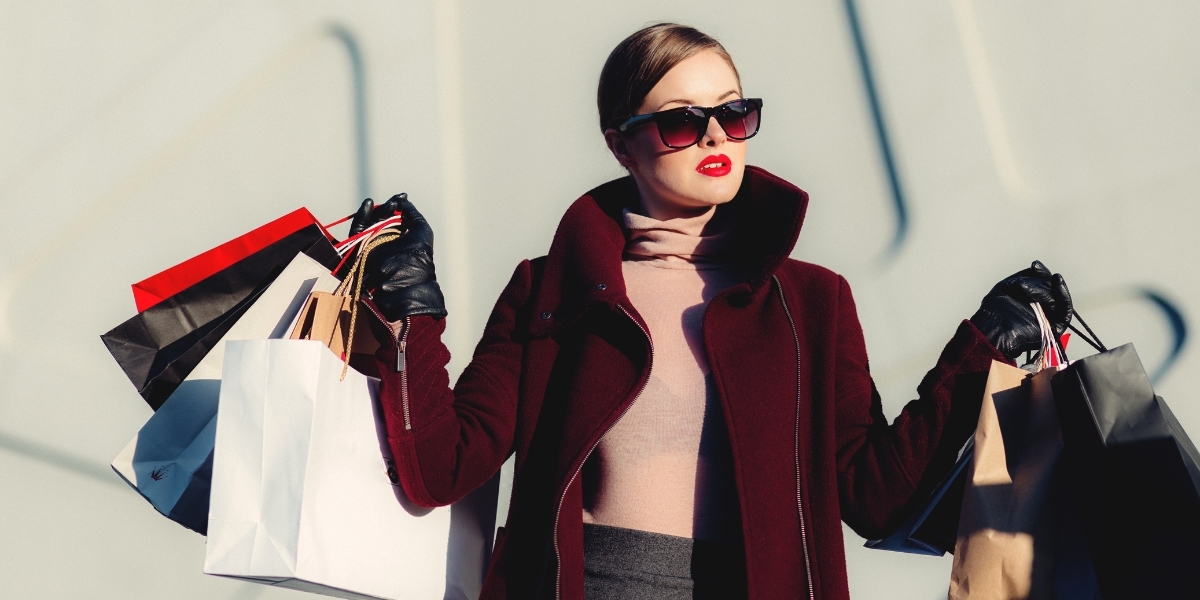
Photo: Canva
Is US Luxury Spending Headed for a Brief or Lengthy Downturn?
The latest Saks Luxury Pulse survey of luxury consumers, fielded in late July, showed the first increase in luxury spending plans since the survey began tracking the metric in May 2022.
The survey showed that 58% of luxury consumers plan to spend the same or more on luxury in the next three months, an increase from 53% in the prior survey in late April. Among respondents with an income of $200,000 or more, 64% plan to spend the same or more on luxury in the next three months, a significant increase from 57% in the prior survey.
In a statement, Marc Metrick, CEO of Saks, saw the uptick as “an indication that core luxury consumers are starting to turn the corner. Although this core luxury consumer is typically the first to rebound from times of economic uncertainty, we remain committed to building meaningful relationships with the full continuum of luxury shoppers, especially those who are likely to become more loyal over time.”
The findings come as Burberry, Chanel, and LVMH have all indicated that luxury spending in the U.S. is more sluggish as the post-pandemic surge tapers off amid rising inflation and the end of pandemic stimulus payments.
In an update on the luxury space in June, Bain & Company said luxury shopping in the U.S. is slowing down due to economic uncertainties and the end of COVID-19 relief funding. Bain’s research found wealthier customers “are holding up, yet partially shifting their spending abroad as price differentials widen,” while more aspirational customers are spending less.
Bain partner Federica Levato told Reuters, “There is an overall slowdown mostly driven by the aspiration side of the customer and more entry prices, so categories like streetwear and sneakers are a bit underperforming as we speak.”
In a recent column for Business of Fashion, Luca Solca, head of luxury goods research at Bernstein, said the luxury industry’s slowdown in the U.S. reflects that “consumers are sobering up from the post-pandemic euphoria and luxury spending growth will undoubtedly moderate and return to its cyclical pattern.”
However, he believes luxury has become a bigger growth opportunity post-pandemic as luxury brands have become better at addressing different consumer segments, creating limited-edition products, and stoking steady demand with VIP events. Additionally, social media has made luxury style more “universal.” Solca explains, “Everyone wants to be a star on social media and the way that luxury brands support our idealized images of ourselves fits the zeitgeist perfectly.”
Discussion Questions
Will the current slowdown in luxury spending in the U.S. be more short-term or long-term in nature? Has the overall luxury growth opportunity become larger due to social media and other factors?


The slowdown in luxury has come off the back of a boom period in 2021 and 2022. The growth rates and sales values produced during those years were fueled by stimulus and were never sustainable. Luxury is now finding a new level in the US. It is also hampered somewhat by the current consumer downturn which has dampened demand, especially among middle income consumers. Luxury will bounce back, but it’s going to take a while before that course correction happens.
For the most part, the luxury sector has been immune to the economic disruptions, the impacts of relentless inflation, global supply chain challenges, tech layoffs, and geopolitical headwinds. The luxury sector dominated by LVMH, Richemont, and Kering and their maisons is resilient, adaptive, and, most importantly, has a diverse go-to-market strategy and product offerings.
For example, if the LVMH maison groups are underperforming, i.e., Perfume and Cosmetics, another group, such as Fashion and Leather Goods, may be trending. Additionally, the luxury sector is never truly down. This luxury customer segment may be a bit more conservative with their spending for the short term. However, the long-term outlook for luxury is always quite optimistic.
There’s no doubt that social media has influenced spend in the luxury market and will continue to do so as shoppers immerse themselves in app experiences and look for unique opportunities to splurge. But inflation is biting into discretionary income and it’s going to limit the average shopper’s ability to buy the next luxury item. I think we’re in for a 12-18 month cycle of reduced luxury spending predominately due economic slowdown and political uncertainty with next year’s general election.
I actually thing the luxury sector is over-exposed. I know I’ve said this before, but if I’m a consumer and I see the same “luxury” product I’m 6 stores, both at wholesale and retail, is it really luxury or just expensive?
To me, luxury implies scarcity. We don’t have scarcity anymore
This post-pandemic season has given consumer’s the chance to define luxury on their own terms. There used to be one price point for luxury: high; and there used to be one consumer target for luxury: fictitiously ambitious.
Now, there is more diversity in pricing and more points of entry such that luxury is somewhat more accessible and with that, the high spenders in luxury are seeking more exclusive and the novelty (+ pandemic-fueled discretionary income) is starting to fade for more moderate luxury consumers.
While the recent slowdown may be a natural course correction, it’s crucial for luxury brands to remain adaptable and attentive to shifting consumer demands to continue to drive brand loyalty. Brand loyalty not only ensures consistent revenue streams but also fosters a strong and enduring connection between consumers and the brand. Diversifying product offerings, targeting different customer segments, and ensuring a resilient go-to-market strategy will continue to be key factors for success in the evolving luxury landscape.